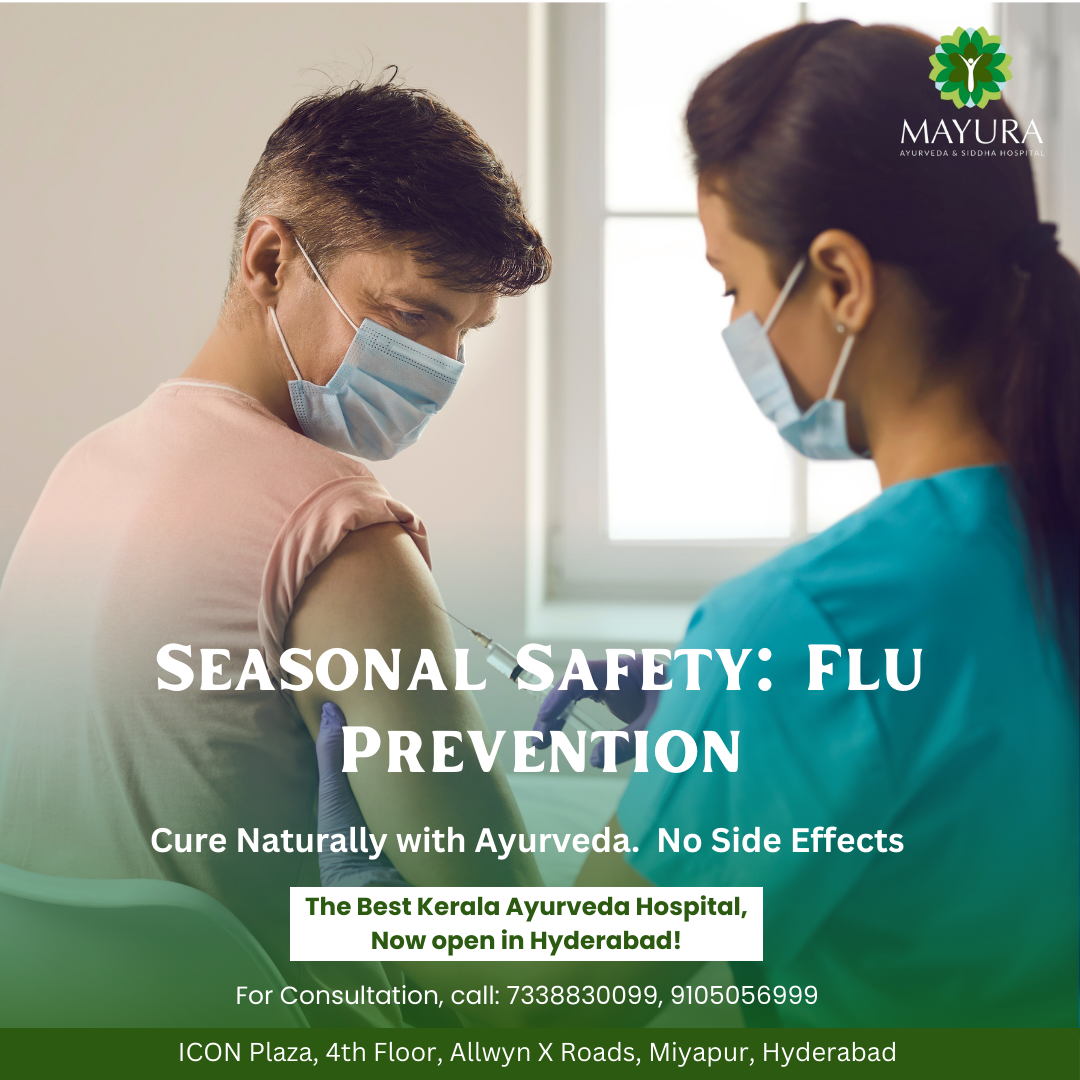Every year, the flu, also known as influenza, casts a shadow over the colder months. This highly contagious respiratory illness can cause fever, chills, body aches, and fatigue, significantly disrupting daily life. But fear not! With a proactive approach and some handy prevention tips, you can navigate flu season with confidence. This blog equips you with the knowledge to safeguard yourself and your loved ones from the clutches of the flu.
Battling the Flu: Understanding the Enemy
The flu virus comes in various strains, and its specific form can change year-to-year. This constant evolution is why annual flu vaccination is crucial. The virus spreads primarily through respiratory droplets expelled when an infected person coughs, sneezes, or talks. These droplets can be inhaled directly or come into contact with your eyes, nose, or mouth when you touch a contaminated surface and then touch your face.
Fortifying Your Defenses: Essential Flu Prevention Tips
Here are some key strategies to bolster your defenses against the flu:
Vaccination is King: The single most effective way to prevent the flu is to get vaccinated annually. The Centers for Disease Control and Prevention (CDC) recommends vaccination for everyone 6 months of age and older.
Wash Your Hands Frequently: Handwashing with soap and water for at least 20 seconds is one of the simplest yet most effective ways to prevent the spread of germs, including the flu virus. Carry an alcohol-based hand sanitizer for situations where soap and water are unavailable.
Practice Respiratory Hygiene: Cover your mouth and nose with a tissue when you cough or sneeze. Dispose of the tissue immediately and wash your hands thoroughly. If a tissue isn’t readily available, cough or sneeze into the crook of your elbow, not your hands.
Avoid Close Contact with Sick People: If someone you know is sick, maintain a safe distance and avoid close contact.
Prioritize Rest and Relaxation: Adequate sleep strengthens your immune system, making you more resistant to infections. Aim for 7-8 hours of sleep each night.
Manage Stress: Chronic stress can weaken your immune system. Practice stress-reduction techniques like yoga, meditation, or deep breathing exercises.
Maintain a Healthy Diet: Nourish your body with a balanced diet rich in fruits, vegetables, and whole grains. These foods provide essential vitamins and minerals that support immune function.
Don’t Neglect Exercise: Regular physical activity strengthens your immune system and overall health. Aim for at least 30 minutes of moderate-intensity exercise most days of the week.
Recognizing the Foe: Common Flu Symptoms
While the severity of flu symptoms can vary, some common signs include:
Sudden fever or feeling feverish/chilled
Cough (usually dry)
Sore throat
Runny or stuffy nose
Muscle or body aches
Headache
Fatigue (extreme tiredness)
Some people may also experience vomiting and diarrhea
If you experience these symptoms, it’s important to rest, stay hydrated, and consult your healthcare provider for diagnosis and treatment. Early diagnosis can help manage symptoms and prevent complications.
Beyond Prevention: Mitigating Flu’s Impact
If you do catch the flu, here are some tips to manage symptoms and recover faster:
Rest and Recuperation: Allow your body ample rest to fight off the infection.
Hydration is Key: Drink plenty of fluids like water, broth, or clear juices to prevent dehydration caused by fever and sweating.
Soothing Remedies: Over-the-counter pain relievers like acetaminophen or ibuprofen can help manage fever, aches, and pains.
Home Remedies: Gargling with warm salt water can soothe a sore throat. Humidifiers can add moisture to the air, easing congestion.
Remember, these tips are for managing symptoms, not a substitute for medical advice. If your symptoms worsen or persist for more than a week, consult your healthcare provider.
Conclusion: Embracing a Healthy Lifestyle
Seasonal flu is a common foe, but with proactive prevention strategies and a healthy lifestyle, you can significantly reduce your risk of getting sick. By getting vaccinated, practicing good hygiene, prioritizing rest, and nourishing your body, you can navigate flu season with confidence. Remember, a healthy lifestyle is your best defense against not just the flu, but a variety of illnesses. Stay vigilant, stay healthy, and have a happy (and flu-free) season!
















